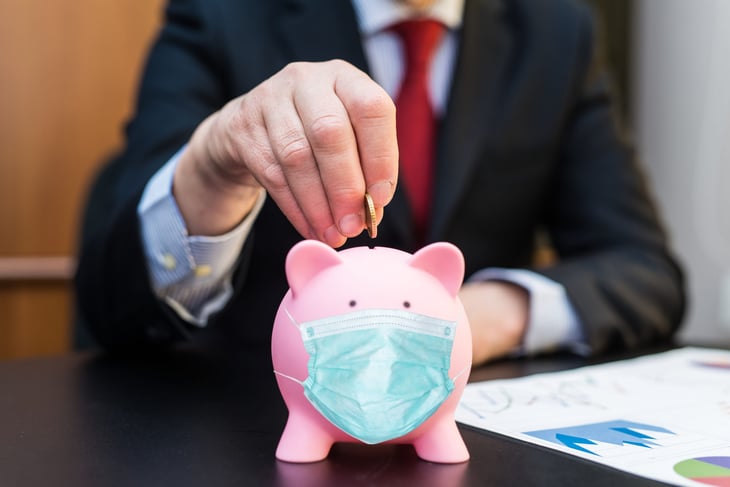
At Money Talks News, we write, talk and think about money 24 hours a day.
So, when we were asked what we were doing differently with our money since the coronavirus pandemic and economic meltdown began, we had plenty to say.
The answers have been heartwarming, instructive and intriguing. Following are some of the money moves that Money Talks News staffers and contributors have made amid the pandemic.
Supporting my community

During my state’s stay-at-home order, we ordered pizza from our local mom and pop (literally — it’s run by a couple and their daughter). When the wife brought our $20 pizza, I gave her $100 and told her to keep the change.
Right there, on my front porch, she began to cry. She thanked me and explained that they’re barely hanging on. Since then, we’ve donated to the local food bank and are continuing to support every local business we can.
Until this economic disaster, giving to charity was just something you did if you were lucky enough to have been able to put aside more than you needed.
But this is different. This isn’t offering handouts. This is fulfilling my obligation to those who share my community. The pizza place, the dry cleaner, the hardware store, the mini-market: These aren’t just places in my neighborhood. They are my neighborhood. So, I’m proud to do what I can to make sure it’s all still here when this is over.
–Stacy Johnson, CEO
Logging the purchases I didn’t make

Confession time: I’m not naturally a frugal person. For me, it’s a choice I made and something I have to work at. So, to hit my savings goals, I almost have to trick myself into putting money away.
With markets down, decades of investing before me, and quite of bit of short-term uncertainty surrounding the economy, I decided to put every penny I could into savings — to completely stop spending on anything unnecessary and invest it all.
To do that, I started a spreadsheet for things that caught my eye — what would typically be impulse buys. The spreadsheet isn’t very complex, just a few columns for the name of the thing, its cost, the date I would’ve bought it, and a picture or URL. Instead of buying something I want but don’t need, I add it to the spreadsheet and put an equivalent amount of money into a highly diversified, passively-managed mutual fund I like.
Sure, I could just invest without the effort of maintaining a list of everything I didn’t buy, but the act of “shopping” and putting these products on a list sort of tricks my brain into investing more instead of spending. It’s been working, so well I might continue doing this (although maybe a bit less extremely) once things are a little more normal again.
–Dan Schointuch, president
Tracking expenses
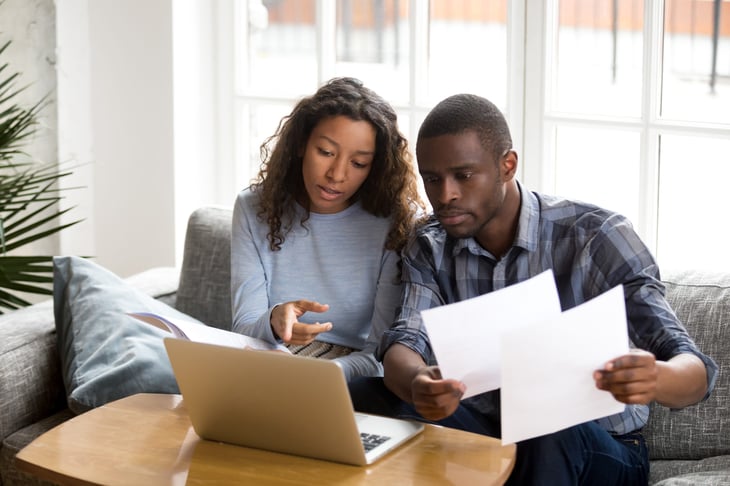
Earlier this year, my spouse and I returned to using budgeting software. (The habit had fallen by the wayside last year, when life got in the way.)
The pandemic is not the reason we returned to using a program called YNAB. But when the coronavirus-induced economic turmoil started, it made us extra glad we were tracking every penny. When you know precisely where your money is going every month, it’s far easier to tweak your spending and saving habits when the unexpected happens.
–Karla Bowsher, managing editor
Not peeking at my investment balances

I use a trusted robo-adviser type retirement investing plan. It has financial advisers but, essentially, based on your risk tolerance, asset allocation preference and age, a computer makes your investment decisions. Perfect for me.
I’m what some call an “emotional investor.” After watching the stock market implode in the last recession, I promised myself that when it happened again, I wouldn’t look at my account balances. The idea was, this would help me avoid making things worse by selling low or driving myself nuts with worry. To my surprise, that’s what I’ve done.
It did help that last summer I once again used a familiar financial planning tool, the risk tolerance assessment. This time, as before, my answers put me in the middle of the pack: somewhat risk-tolerant, somewhat risk-averse. So, I asked myself: Could I stand it if my account balance fell drastically? Yes, I could, I decided. So, here I am, ignorant and more or less calm, grateful to have a plan.
–Marilyn Lewis, contributing editor
Resisting the temptation to sell stocks
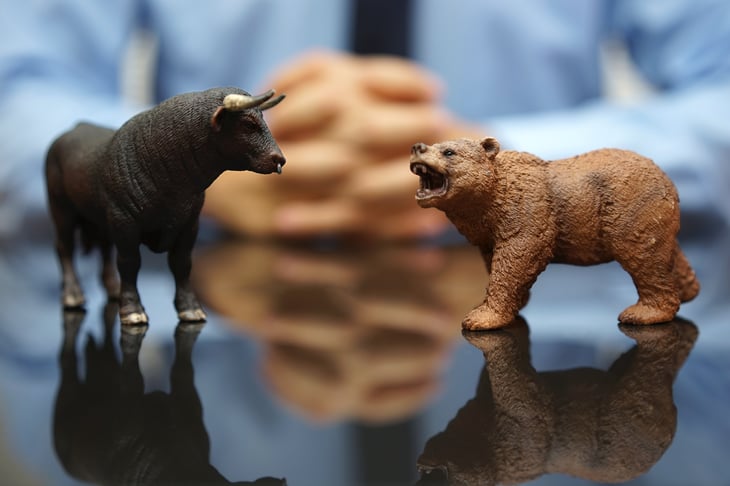
I’ve thought about taking some money out of the stock market as we were heading south. But, after consideration, I decided that I’m not going to.
I believe there is a light at the end of the tunnel. And, because I am youngish, I know that staying the course is my best option. I may even buy some more stocks while they cost less.
–Moshe Berman, senior marketing manager
Beefing up savings
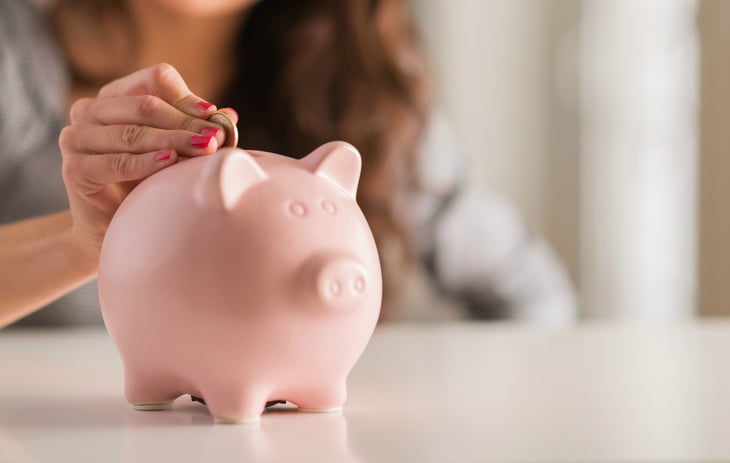
When the pandemic hit, I’d been saving for a year for an epic trip that would have started in mid-April. Three countries and five weeks, relaxing and traveling with old friends. Did I say it was going to be great?
I was going low-budget: Airbnbs and airline-mileage tickets. But even that takes money, so I buckled down and built a trip fund. Now, stuck at home, I thought about using that money for home upgrades — a new fridge and dishwasher, especially. I have a decent emergency fund already, so I could rationalize spending it.
I checked my gut, though. Everyone has some dumb decisions in their past, and I remembered the queasy anxiety I’ve felt from mistakes I made in the past. I added the trip money to savings. It’s not exciting, but I’m sleeping well.
–Marilyn Lewis
Buying more stocks

The coronavirus has impacted my income. As a freelancer, I’m getting less work now. But I’m hopelessly frugal — a born cheapskate. So, I’ve been able to adjust to my new economic reality without having to overhaul my spending and saving habits.
However, I did make one change early on in the pandemic: As the stock market took a nosedive, I began investing a lot more money than I normally do.
In the past, I’ve lived through two epic bear markets — a 31-month mauling that ended in the fall of 2002 and the 17-month crash of the Great Recession that ended in March 2009. In both cases, I continued to buy shares of mutual funds week after week, only to watch my dollars disappear as the market sank even lower.
Eventually, though, things turned around, and I was handsomely rewarded. Compared to the two gut-wrenching slides of the past, the most recent bear market was rather tame, more like a “cub market.” So far, my decision to pour money into stocks during February and March has turned out well.
But anything can happen in the stock market — and usually does. It’s possible all my gains could soon disappear if we have another sudden correction. Still, no matter how things turn out in the short run, I’m hopeful that over time, “buying low” will pay off as it has in the past.
–Chris Kissell, contributing editor
Doing more projects

Even though my freelance work has dropped off a bit, I’m still well within my needed range to meet my lifestyle goals. As a result, I’m actually spending more time on projects I’d been putting off. These are projects designed to bring more revenue down the road. I’m fortunate to have extra time, and be in a position where I can use that time to further position myself for the future.
I’ve made a priorities list of things that I might need to cut back on if things worsen. But for now, I’m staying the course and seeing what I can do to boost my future income.
—Miranda Marquit, contributing writer and podcast co-host
Updating our wills

My husband and I made an appointment with an attorney to make sure our will and end-of-life wishes are in order. This pandemic has been a sobering reminder that anything can happen at any time.
–Kari Huus, former business development manager
Gardening more

I’ve been planting more vegetables this spring. My gardening space is limited, so “more” doesn’t translate to material savings, but it still has helped me weather the lockdown. When I was homebound by an executive order, I found a comfort in becoming even a little more self-sufficient.
If you’re interested in gardening but don’t know where to start, try contacting your local cooperative extension service. It likely has gardening experts who can tell you what plants and crops are good for beginners in your particular area during a given season. Such advice is generally free because extension services are funded in part by public money.
–Karla Bowsher
Buying and cooking more food in bulk
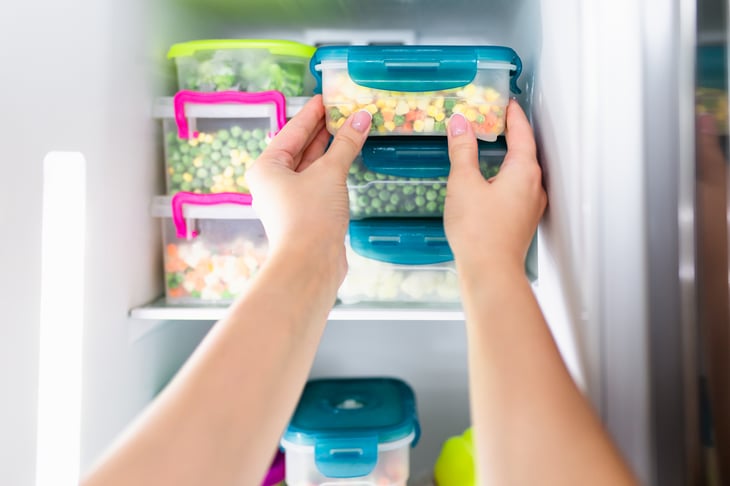
We have filled the freezer in our kitchen with extra protein, bread, homemade soup and so on. It really saves on trips to the grocery store and has made us more efficient with our food. Now, we are now acquiring an additional one from a relative to put in our basement so we can do more buying and cooking in bulk.
–Kari Huus





Add a Comment
Our Policy: We welcome relevant and respectful comments in order to foster healthy and informative discussions. All other comments may be removed. Comments with links are automatically held for moderation.